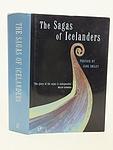The Greatest Books From 1000 to 1010
Click to learn how this list is calculated.
This list represents a comprehensive and trusted collection of the greatest books. Developed through a specialized algorithm, it brings together 300 'best of' book lists to form a definitive guide to the world's most acclaimed books. For those interested in how these books are chosen, additional details can be found on the rankings page.
Genres
Countries
Date Range
Reading Statistics
Click the button below to see how many of these books you've read!
Download
If you're interested in downloading this list as a CSV file for use in a spreadsheet application, you can easily do so by clicking the button below. Please note that to ensure a manageable file size and faster download, the CSV will include details for only the first 500 books.
Download-
1. The Tale of Genji by Murasaki Shikibu
"The Tale of Genji" is a classic work of Japanese literature from the 11th century, often considered the world's first novel. The story revolves around the life of Genji, the son of an emperor, exploring his political rise, romantic relationships, and the complex court life of the Heian era. The novel is celebrated for its detailed characterization and its analysis of the different forms of love.
-
2. Beowulf by Unknown
"Beowulf" is an Old English epic poem that tells the story of the eponymous hero, a Geatish warrior who comes to the aid of Hrothgar, the king of the Danes, whose mead hall is under attack by a monster known as Grendel. Beowulf fights and defeats Grendel and his mother, earning the gratitude and friendship of Hrothgar. Later in his life, Beowulf becomes king of the Geats and faces his final battle with a deadly dragon. The poem explores themes of heroism, fate, and mortality, and is considered one of the most important works of Old English literature.
-
3. The Pillow Book by Sei Shōnagon
"The Pillow Book" is a collection of personal observations, anecdotes, and reflections by a woman in the Heian court of Japan. It presents a detailed and vivid picture of court life, including the lavish ceremonies, the rivalries and intrigues, the idle pastimes of the courtiers, and the romantic escapades of the empress and her consorts. The book also contains lists, poetry, and personal musings, providing a unique perspective on the culture and customs of the Heian period.
-
4. Shahnameh by Ferdowsi
"Shahnameh" is an epic poem that chronicles the history of pre-Islamic Persia, from the creation of the world up until the Islamic conquest of Persia in the 7th century. This literary masterpiece intertwines myth, history, and folklore to tell the stories of legendary kings, heroes, and villains, such as the tragic hero Rostam and the tyrant Zahhak. The narrative also explores themes of love, loss, and moral dilemmas, providing a rich and nuanced portrayal of Persian culture and identity.
-
5. Murasaki Shikibu Nikki ; Murasaki Shikibu Shū by Murasaki Shikibu
The book is a classical Japanese work that combines a diary and a collection of poetry by a noblewoman from the Heian period. It provides a rare glimpse into the life and emotions of the author, who served in the imperial court. The diary portion offers insights into courtly life, detailing the customs, events, and interpersonal relationships of the aristocracy, while the poetry showcases the author's literary talent and sensitivity to the natural and emotional world around her. The work is significant for its personal perspective on Heian-era culture and its contributions to the development of Japanese literature.
-
6. The Sagas Of Icelanders by Örnólfur Thorsson
"The Sagas of Icelanders" is a collection of epic tales composed during the 12th and 13th centuries, recounting the lives, struggles, and adventures of early Icelandic settlers around the 9th to 11th centuries. These sagas provide a rich narrative that blends history with mythology, offering insights into the social structures, legal systems, and cultural values of medieval Iceland. Through stories of exploration, family feuds, voyages, and vendettas, the sagas portray the challenges and daily life of Norse men and women, highlighting themes of honor, power, and fate that shaped the Viking Age and left a lasting legacy on Icelandic identity.
Reading Statistics
Click the button below to see how many of these books you've read!
Download
If you're interested in downloading this list as a CSV file for use in a spreadsheet application, you can easily do so by clicking the button below. Please note that to ensure a manageable file size and faster download, the CSV will include details for only the first 500 books.
Download




